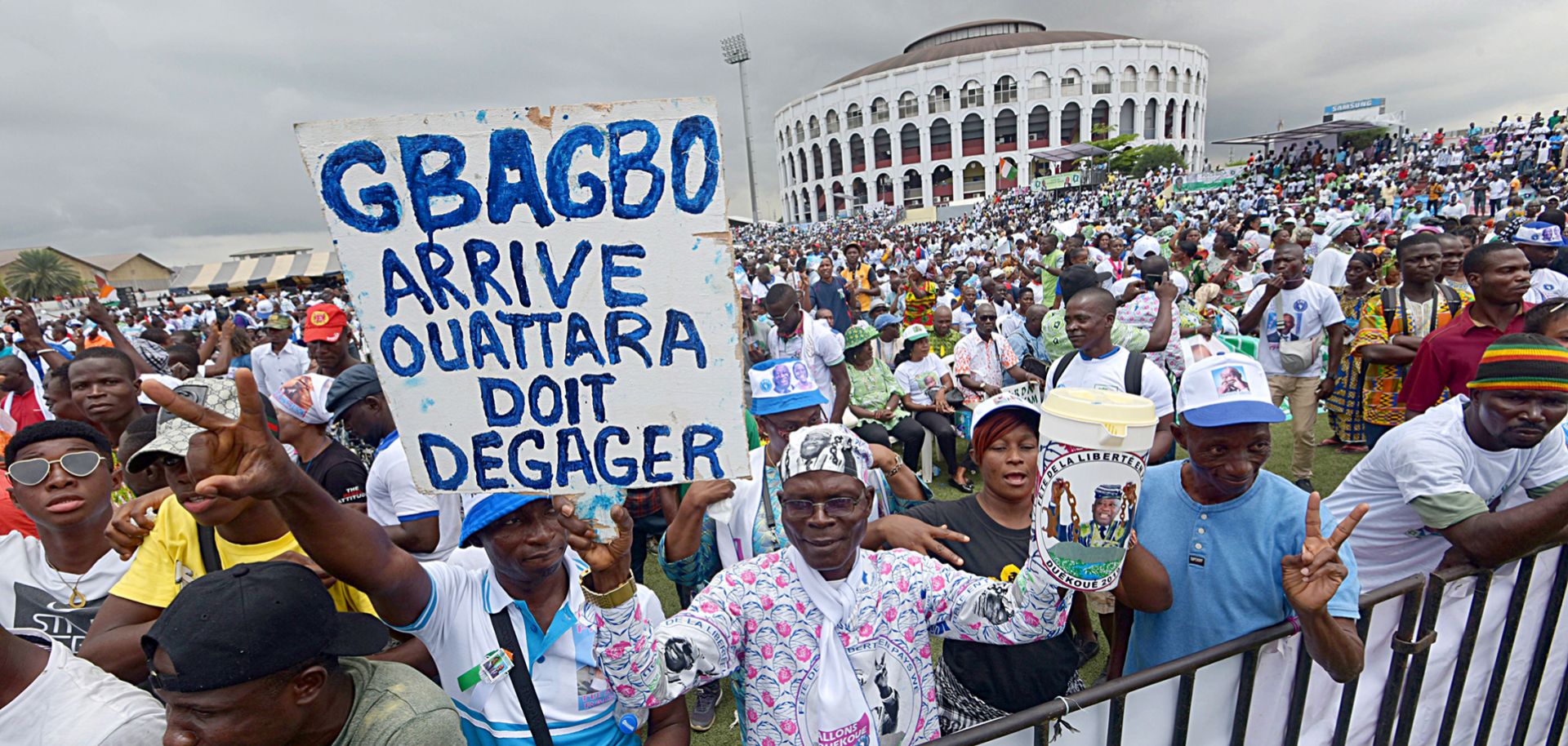ASSESSMENTS
In Ivory Coast, an Impending Election Portends Instability
Dec 19, 2019 | 10:00 GMT

The scene at a meeting of Ivorian opposition parties on Sept. 14, 2019, in Abidjan, Ivory Coast.
(SIA KAMBOU/AFP via Getty Images)
Highlights
- Political risk for Ivory Coast and its foreign investors will increase as presidential candidates seek to exploit deep fissures in Ivorian society for political gain.
- Despite previously promising to step down, President Alassane Ouattara will likely run again if his two biggest rivals from recent years also seek the presidency in October 2020.
- Sahel-based militants will seek to exploit any instability, as Ivory Coast's close relations with Western powers France and the United States and its large population of French expatriates and Western tourists make it a prime target.
Subscribe Now
SubscribeAlready have an account?
